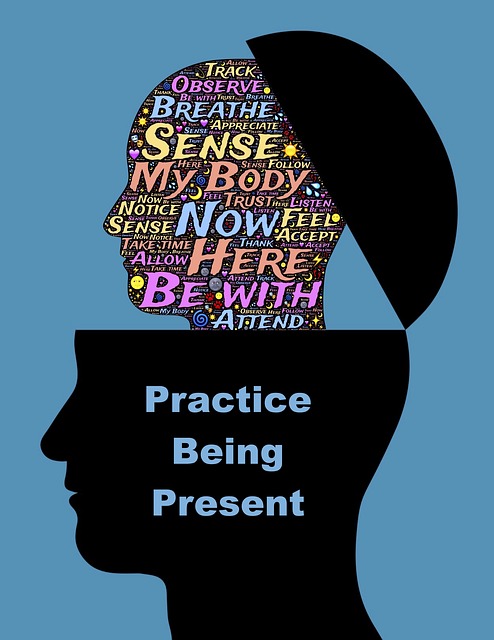I have been co-authoring a book with my colleague, Julie Cork. The book, Managing People with Confidence (to be published in 2025), is based on our co-facilitated, longitudinal, manager development program. We have conducted the 4-6 month Action Learning Program together for the past 16 years. The book is based on our experience of working with over 2,000 managers and draws on the Resources Book that we have co-authored and provided to Program participants.
I found it intriguing to read Ivan Cleary’s memoir, Not Everything Counts but Everything Matters. Ivan states very clearly that everything that you do as a leader/coach matters, whether you are in the public eye or not – it matters intensely to your team members. In our Manager Development Program and co-authored book, we make the fundamental point that as a manager “what you say and do and how you say it and do it” matters – it shapes your team and your team culture. We emphasise the need to manage mindfully – being conscious of the impact of your words and actions on members of your team. Ivan reinforces this message by sharing his own learning experiences as a leader and coach.
There are many elements to Ivan’s book about how he led Penrith to three consecutive premierships (despite early career failures and depression) that resonate very strongly with our long established approach to managing people with confidence. Below are some of the elements that we have in common with Ivan when writing about managing people:
- Consciously creating a team culture: Ivan spends considerable space in his book stressing the critical importance of consciously establishing a team culture based on mutual respect, commitment and behavioural norms. Our Program emphasised this cultural element very strongly. We encouraged manager participants to think explicitly about the kind of team culture they are trying to cultivate and provided them with a model for developing a productive and mentally healthy team culture.
- Building trust in the team: Ivan reiterates this time and again because it develops relationships and connection – so that people have a sense of belonging and become focused on the success and wellbeing of the playing team and all team members (including, in Ivan’s case, his Assistant Coaches and other staff). He emphasises the importance of leadership accountability and authenticity, involving honesty and owning your mistakes. We encapsulate these themes in our book by emphasising “congruence” – aligning your actions as a manager with your words. It means not just espousing values but personally acting on them so that you model your desired cultural values in your own behaviours, in your words and actions. This congruence, in turn, builds trust.
- Giving positive feedback – in his early career, Ivan failed to do this and acknowledged in his book that it negatively impacted team members. He came to realise the power of positive feedback, acknowledging individual’s contribution to the overall positive team outcomes. The contributions will differ among players and non-playing staff but each person has a role to play for team cohesion and success and this needs to be acknowledged through positive, timely, sincere feedback by the leader/coach. It’s through positive feedback that we build employee’s self-belief and self-efficacy. In this way, we can also reinforce the desired values and related behavioural norms of our team.
- Proving corrective feedback – failing to do this, can lead to self-deception and misconceptions on the part of an individual team member. Honest, open corrective feedback reinforces cultural norms, builds self-awareness and helps people make the quality contribution that they are capable of. Like Ivan, in our long-running Program and book, we have emphasised the need to provide such feedback face-to-face and in private to facilitate understanding and acceptance of the feedback.
- Being vulnerable to encourage openness by team members: Ivan shared with team members (and in his book) that fact that he had experienced debilitating depression and anxiety at various stages in his career as an elite footballer and coach. By sharing his own vulnerability, he encouraged his team members to “speak up” about their personal difficulties and to draw on the social support of family members, friends and therapists. As managers, we can build trust and openness in our team by acknowledging our own vulnerability and sharing strategies to develop positive mental health.
- Developing individual and team resilience: by providing stretch and helping people to use challenges to build character and grow in confidence in facing inevitable setbacks. In this way, we enable team members to grow and develop exponentially on all fronts – intellectually, physically and emotionally. In our Program and book, we provide specific strategies for building team resilience, through an approach we call “the 10 C’s”. Managerial congruence is foundational to this approach.
- Delegating to team members and support staff: a fundament challenge for the leader/manager is to be able to “let go” to enable employees to grow and develop and learn through their own mistakes. In our book, we highlight the power of delegation and the disablement of others (and ourselves) that occurs when we fail to delegate. Ivan acknowledged that he learnt the hard way by trying to do it all himself. He recognises now that trusting others to perform and achieve builds connection, competence, respect and self-belief.
- Mindfulness to overcome depression and anxiety: Ivan stresses the importance of being able to stay in the present moment to avoid experiencing depression (by focusing negatively on the past) or anxiety (by focusing negatively on the future). He discusses ways that different elite athletes have used mindfulness to restore their focus and concentration (away from negative-self-talk) in the middle of challenging encounters (with others or their own mistakes). Ivan reiterates the importance of mindfulness for “high performance” and positive mental health. Our own book and related manager development Program provides reflections and strategies to build managerial mindfulness, incorporating both reflection-on-action and reflection-in-action (the latter described by Ivan as “practising mindfulness in the middle of the football field” (e.g. joining our fingers to feel the warm of the blood flow in our hands). He maintained that so much of his day as Head Coach with the Penrith NRL team is taken up with providing information to players or “mindfulness practices”. Mindfulness helps us to become grounded and firmly focused on the present moment.
Reflection
Both Ivan’s book and our manager development Program and book (currently in production) reinforce the power of mindfulness. As we grow in mindfulness through reflection and mindfulness practices we can develop self-awareness, build resilience and grow in self-belief and creativity.
___________________________________________
Image by John Hain from Pixabay
By Ron Passfield – Copyright (Creative Commons license, Attribution–Non Commercial–No Derivatives)
Disclosure: If you purchase a product through this site, I may earn a commission which will help to pay for the site, the associated Meetup group and the resources to support the blog.

